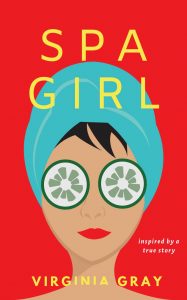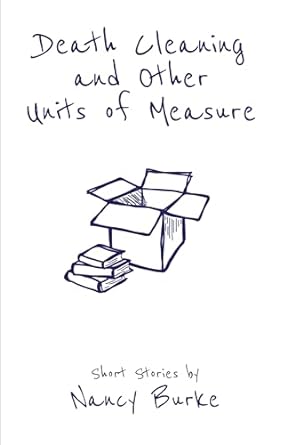Authors Interviewing Characters: Virginia Gray and Mei Zi
Bestselling Author Virginia Gray writes books about headstrong women falling in love and finding their place in the world. Her award-winning series, The Susan Wade Saga, has been an Amazon Prime feature and considered for film option. Her latest novel, Spa Girl, is on sale now.
We asked Virginia if she would be willing to interview her character of SPA GIRL, Mei Zi, and to our delight, she said yes!
she said yes!
—
About SPA GIRL
Inspired by a true story…
Armed with an eighth-grade education and a centuries-old set of traditional values, Mei Zi leaves her remote farming village in search of a better life. When an elusive businessman lures her a thousand miles from home, she quickly discovers dazzling Shanghai has its own brand of desperation. Soon penniless and on the brink of starvation, a stranger sets her on a collision course with an ex-pat.
Is his love enough to change her fate, or are his promises of a better life in America just as empty?
A must read for Amy Tan and Lisa See fans.
★★★★★ “Spa Girl is an authentic saga showing the true tenacity of the human spirit. With captivating prose, Virginia Gray will take you along this fascinating journey of one woman’s fight to find her place in this world.” —Kay Bratt, International Bestselling Author of Tales of the Scavenger’s Daughters
★★★★★ “This is one of my most valuable reads of this year…This heart-warming story reminded me of some great classics and their quality in storyline. And definitely gave me a lot to think of in the things we have and take for granted, while others have to fight and burn for them.” — Goodreads
A Conversation Over Tea
 Focused on her conversation, GuoGuo strides with purpose past the coffee shop’s wide plate-glass window. We haven’t seen one other in nearly two years, but she looks just the way I remember. Her eyes catch mine, and she rapid-fires one last strain of a language I’ll never master into her phone, dislodges her air pods, and offers me a warm hug.
Focused on her conversation, GuoGuo strides with purpose past the coffee shop’s wide plate-glass window. We haven’t seen one other in nearly two years, but she looks just the way I remember. Her eyes catch mine, and she rapid-fires one last strain of a language I’ll never master into her phone, dislodges her air pods, and offers me a warm hug.
“I can’t believe you’re finally here,” she says through her thick accent.
I can’t either. She’s mythological to me, a character half real and half imagined, and I’m too busy smiling like an imbecile to respond. I motion to the space opposite me. Wearing Lulu Lemon Yoga pants and coordinating top, she tosses her Longchamp’s shoulder bag on the padded bench and slides into the booth in one smooth motion. I can’t help thinking she’s the very picture of an American suburbanite—so “basic” as my teenage daughter would say. To look at her, one would never think otherwise.
I order tea for us and a couple of apricot danishes because they sounded good and I know she likes them. I also know she can’t read the menu.
I know everything about GuoGuo, in fact. I know about her childhood and her family, the conditions in which she’s lived. I know her dreams and aspirations, her friends and her enemies, her darkest secrets, her deepest fears, the gory details of her rocky marriage. I’ve documented it all, spilling those secrets across the pages of a manuscript I’ve now made public. A small part of me feels guilty about that, the audacity of stripping away layers of a person’s life to expose their soul and then sowing them up again with new words, but in all honesty, she asked for it. She really did. She offered up those intimate details, knowing full well that I was chronicling them for a book, crafting a fictionalized version, the ghostwriter of her memoir. I tell myself I’m Arthur Golden. It always eases my conscious.
“How are your girls?” she asks.
My Chinese-born children are the reason we met and the red thread binding us. They are my impetus for writing this woman’s story, and why she felt comfortable letting me do it. Her story might have been theirs had they not been adopted. A small shiver runs through me at the thought. I tell her they’re fine, happy, successful; the truth.
The waitress sets the steaming teapot on the table, and jasmine scents the air between us. It seems we’ve come full circle—or nearly so. Two people making small talk over tea. I only wish our view was of the Jamaican resort where we met rather than this busy Atlanta street. But that was a moment in time. A family vacation for me, a destination wedding for her, a chance meeting.
“And your husband?”
She takes a long, thoughtful sip of tea and then slowly sets her cup back on the table. “The same.”
Honestly, the only real memory I have of him is a snapshot: a sandy-haired man hunched over a nearby table writing a best man’s speech. She’d left him there to come sit with me. I’d asked her how she’d come to America, and she’d flicked her hand back towards him and said, “We met in Shanghai when he worked for UPS.” I may have waved then. I don’t remember.
What I do remember is thinking I’d never heard of a better meet cute than a lost American delivery guy trying to get a package to a Shanghai woman. That’s not what happened in real life, of course, but as a romcom author suffering from writer’s block, the mere possibility was a match strike.
My comedic plans melted away over the next few months as she told me her story. Their meeting was every bit as delightful as I’d imagined, but GuoGuo’s life wasn’t hilarious. Not at all. Endearing, tragic, disturbing, triumphant, awe-inspiring. These are much better descriptors.
“I love the book,” she says. “It’s teaching me English. I don’t know all the words, so I use my dictionary a lot. I read the ending first. It made me cry.”
“But it’s your life,” I say, amused. “You know what happens.”
She shakes her head, the tips of her hair, its brassy highlights and waves achieved only by professional intervention, caress her neck. A rueful smile forms, or perhaps it’s one of disbelief. “I still don’t understand why you wanted to write it. My life is just normal.”
She’s said this many times to me, and it always makes me laugh. She has no idea how very unusual her story is, how epic in some ways. How her mother had no choice but to hide her pregnancy, knowing that at any time, officials from the Organization for Family Planning might drag her from the rice fields, haul her to a clinic, and rip the baby from her womb. And that after giving birth, in hopes of avoiding the exorbitant second-child fine, she called her Mei Zi, which mean “girl”, rather than officially naming her. I take another sip of my tea, knowing it costs more than that truly life-altering fine they were eventually forced to pay.
But this is commonplace to GuoGuo—a standard, everyday practice, especially in remote mountain villages like hers. The Chinese state of things. But her parents aren’t commonplace people in many respects. Though conservative and raised traditionally, they made a point to treat GuoGuo and her brother, Ming, equally. They collected garbage from the streets, engaged in shady business dealings, and her mother risked imprisonment just to earn enough money to send them both to school; someone in the family needed to be able to read and write. GuoGuo gets her indomitable spirit from her mother.
“How are your parents?” I ask.
I worry about them. They live in Hunan Province, which borders Hubei, home to Wuhan. Writing this book has taught me about life behind the bamboo curtain. The poverty, the fear, the struggle. GuoGuo has explained that health insurance doesn’t exist there, and only those who can pay upfront get medical treatment. “Hospitals will let you die like a dog on the street,” she’s said. I wonder how that system works during a pandemic.
“Do you know, the government called my brother looking for me?”
“No!” I say in disbelief, though I don’t know why this surprises me. At this point, the only thing that should is how well GuoGuo, a Chinese immigrant with an eighth-grade education and cursory knowledge of the English language, finds ways to overcome every obstacle put in her path. If the tables were turned, I wonder if I, or anyone I know, could do as well.
Hers is a story worth knowing.
The server wanders by with the check. I reach for my purse, but a credit card has already appeared in GuoGuo’s hand. “My treat,” she says. “I feel I owe you so much.”
I don’t want to laugh, but I can’t help it. “I think you’ve got that backwards.”
—
Bestselling Author Virginia Gray writes books about headstrong women falling in love and finding their place in the world. Her award-winning series, The Susan Wade Saga, has been an Amazon Prime feature and considered for film option. Her latest novel, Spa Girl, is on sale now. For more information, please visit virginiagray.com
Follow her on Twitter @VirginiaGraybks
Category: On Writing
























